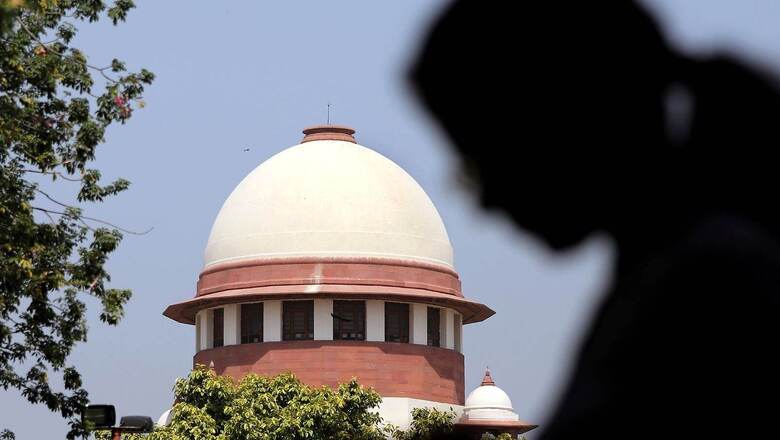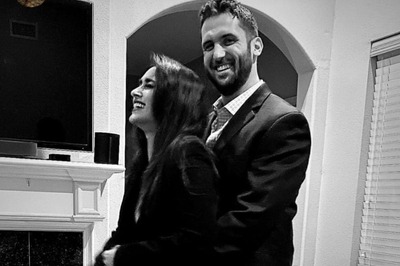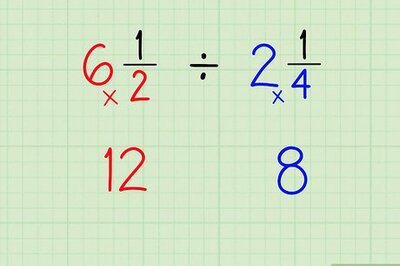Can't Place Additional Restrictions on Right to Free Speech of Persons Holding Political Offices: SC

views
The Supreme Court on Tuesday ruled additional restrictions cannot be imposed on the fundamental right of freedom of speech and expression of high public functionaries as exhaustive grounds already exist under the Constitution to curb that right.
A five-judge Constitution bench headed by Justice S A Nazeer was unanimous on the larger question with regard to putting additional curbs on freedom of speech and expression of high political functionaries.
The contentious constitutional issue had cropped up following the purported statement of then Uttar Pradesh minister Azam Khan with regard to the alleged gang-rape of a mother- daughter duo on a highway near Bulandshahr in July 2016. Khan had termed the ghastly offence a “political conspiracy”.
On the key issue of whether the government can be held responsible and liable for the statements of an individual minister, the Constitution bench, by a 4:1 majority, ruled that the government cannot be held “vicariously” liable for the disparaging statements made by individual ministers.
Justice V Ramasubramanian, who wrote the judgement for himself and Justices Nazeer, B R Gavai and A S Bopanna, said the concept of collective responsibility is essentially a political concept and it is not possible to extend this concept to any and every statement orally made by a minister outside the House of the People/Legislative Assembly.
Justice B V Nagarathna, who wrote a separate judgement while concurring on the larger issue of additional restrictions on high public functionaries, however, differed on various legal questions including the one related to whether the government can be held vicariously liable for the disparaging utterances of its ministers.
She said a statement made by a minister, if traceable to any affairs of the State or for protecting the government, can be attributed vicariously to the government by invoking the principle of collective responsibility, so long as such statement represents the view of the government.
“The restrictions under clause (2) of Article 19 (Freedom of speech and expression) are comprehensive enough to cover all possible attacks on the individual, groups/classes of people, the society, the court, the country and the State…
“Under the guise of invoking other fundamental rights or under the guise of two fundamental rights staking a competing claim against each other, additional restrictions not found in Article 19(2), cannot be imposed on the exercise of the right conferred by Article 19(1)(a) upon any individual,” Justice Ramasubramanian, said in the 300-page judgement.
Article 19(2) relates to the powers of the State to make laws imposing reasonable restrictions on the exercise of the right to freedom of speech and expression in the interest of sovereignty and integrity of the country, public order, decency, morality etc.
Observing that the State is under a duty to affirmatively protect the rights of a person under Article 21 (Protection of life and personal liberty)even by a non-State actor, the apex court held that a fundamental right under Article 19 and 21 can be enforced even against persons other than the State or its instrumentalities.
On the issue whether a statement by a minister inconsistent with the rights of a citizen constitutes a violation and is actionable, the top court said no one can either be taxed or penalised for holding an opinion which is not in conformity with the constitutional values and is only when his opinion gets translated into action and such action results in injury or harm or loss that an action in tort (a wrongful action or infringement of right) will lie.
“A mere statement made by a Minister, inconsistent with the rights of a citizen under Part III of the Constitution, may not constitute a violation of the constitutional rights and become actionable as Constitutional tort. But if as a consequence of such a statement, any act of omission or commission is done by the officers resulting in harm or loss to a person/citizen, then the same may be actionable as a constitutional tort,” the bench said. It said a fundamental right under Article 19/21 of the constitution can be enforced even against persons other than the State or its instrumentalities.
Justice Nagarathna agreed that greater restriction cannot be imposed on free speech, in addition to grounds under Article 19.
She, however, said such statements can be vicariously attributed to the government in case a minister makes disparaging statements in his “official capacity”.
“Equality, liberty and fraternity are the foundational values embedded in the Preamble of our Constitution. ‘Hate speech’ strikes at each of these foundational values, by marking out a society as being unequal.
“It also violates fraternity of citizens from diverse backgrounds, the sine-qua-non of a cohesive society based on plurality and multi-culturalism such as in India that is, Bharat,” she said.
She said freedom of speech and expression is a much needed right so citizens are well informed and educated on governance.
Justice Nagarathna said the permissible content of the right to freedom of speech and expression ought to be tested on the touchstone of fraternity and fundamental duties as envisaged under our Constitution.
“Although the questions for consideration before the Constitution bench, were with specific regard to the possible restraints on unwarranted and disparaging speech by public functionaries, the observations made hereinabove will apply with equal force to public functionaries, celebrities/influencers as well as all citizens of India, more so because technology is being used as a medium of communication which has a wide spectrum of impact across the globe,” she held.
Justice Nagarathna said public functionaries and other persons of influence and celebrities, having regard to their reach, real or apparent authority and the impact they wield on the public or on a certain section thereof, owe a duty to the citizenry at large to be more responsible and restrained in their speech.
The top court, which reserved its verdict on November 15, had said people holding public offices should exercise self-restraint and not blabber things that are disparaging or insulting to other people in the country.
A three-judge bench had on October 5, 2017 referred to the Constitution bench various issues for adjudication, including whether a public functionary or a minister can claim freedom of speech while expressing views on sensitive matters.
The need for an authoritative pronouncement on the issue arose as there were arguments that a minister cannot take a personal view and his statements have to be in sync with government policy.
Read all the Latest India News here




















Comments
0 comment